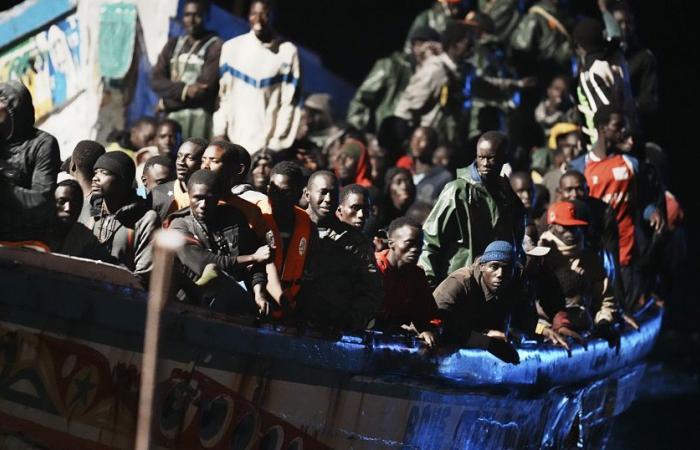With his eyes fixed on the horizon, Captain Assane Seye keeps a vigilant watch aboard the patrol boat Niani, scanning the waters off the Senegalese coast. Its mission: to intercept boats carrying candidates for illegal immigration.
This operation demonstrates Senegal’s commitment to stemming irregular departures while raising awareness of the dangers of these crossings. In this region, attempts to cross the sea to Europe, often perilous, are increasing, fueled by dreams of a better life and local socio-economic challenges.
“In 2024, since January 1, 2024, the navy has saved 4,780 people, who left on 33 canoes (small boats)” explains Captain Assane Seye.
On board the Niani, Captain Seye’s team plays a key role in efforts to combat this scourge, combining surveillance, prevention and assistance to intercepted migrants. A month ago, the crew’s work helped rescue an overloaded canoe carrying 200 people in distress.
The Mediterranean was the main route taken by migrants from West Africa to Europe. But since the financial agreements between the EU and Libya and Tunisia, candidates for exile have opted for the Canary Islands, this route is not only longer but also considered one of the deadliest in the world.
When we talk about illegal immigration aboard canoes, we are talking about something really important. These are canoes which carry a minimum of 70 people. So automatically, their lives are in danger. A canoe is not built to carry these numbers. All it takes is a change in the weather, or one wrong move by the captain, for the canoe to turn over and people to be in danger, he adds.
The absence of precise data on departures from West Africa makes it difficult to establish an exact assessment of human losses on migratory routes. However, according to estimates by the Spanish migrant rights organization Walking Borders, the victims are in the thousands this year alone.






